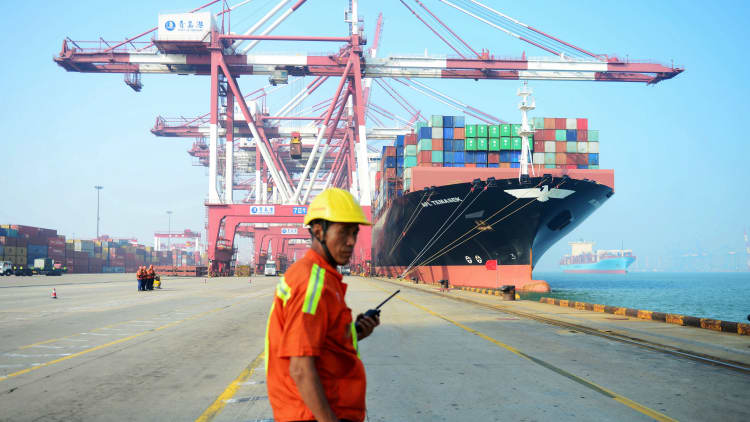More than one year since the start of a trade war between Washington and Beijing, economists from Japanese investment bank Nomura found evidence that the U.S. and China — in order to avoid elevated tariffs — have cut down importing certain goods from each other.
Instead, importers in the two countries have been sourcing for the same products from alternative locations not targeted by tariffs, the economists said in a report outlining their findings. Vietnam has so far emerged as the largest beneficiary of that diversion in trade flows, gaining an estimated 7.9% of its gross domestic product from those new business, according to Nomura.
"As tit-for-tat tariff hikes between the US and China increase, so does the cost of importing from each other," the economists wrote in the report dated June 3.
"Some exporters in the US and China may be willing to absorb part of the additional tariff costs in their profit margins, and some multinationals could opt to re-shore production, but the trade literature shows that, over time, the largest response is likely to be trade diversion," they added.
A chart by Nomura showing the beneficiaries of the trade war and their estimated gains. Click to expand.
The U.S. has so far slapped a 25% tariff on $250 billion of Chinese goods, and American President Donald Trump has threatened to apply the same elevated levy on the remaining imports from China worth around $300 billion. In retaliation, Beijing also raised tariffs on billions of dollars worth of American products.
That tariff fight has resulted in the U.S. and China importing fewer goods from each other, especially products subject to higher levies, said Nomura. In addition to Vietnam, the other major beneficiaries from the trade war are Taiwan, Chile, Malaysia and Argentina, the bank said.

Vietnam and Taiwan benefited mostly from additional exports to the U.S., while Chile, Malaysia and Argentina gained by selling more to China, according to Nomura.
The full picture
Looking at products subject to higher tariffs, Nomura economists found that levies imposed by Washington on China pushed U.S.-based firms to opt for alternative sources for many sets of products. That includes electric apparatuses for phones, parts of office machines, automatic data process machines, furniture and travel goods.
On the other hand, China's tariffs on the U.S. resulted in Chinese importers buying soybeans, aircraft, grains and cotton products from other countries, according to the Japanese financial firm.
These are some of the products that Nomura said the top five beneficiaries have been exporting more as a result of the trade war:
- Vietnam: phone parts, furniture, automatic data process machines
- Taiwan: typewriter parts, office machines, phone parts
- Chile: copper ores, soybeans
- Malaysia: electronic integrated circuits, semiconductor devices
- Argentina: soybeans
While the study showed that third-party economies can benefit in the U.S.-China tensions by becoming substitute sources for goods subject to elevated tariffs, Nomura economists warned that the findings don't paint the full picture of the trade war.
"There are many other forces at work and the overall economic impact on most third countries will be negative," they said.
The detrimental effects may include companies holding back investment plans due to uncertainties on trade, and falling demand in the U.S. and China because companies and consumers in both countries end up facing higher costs due to the tariffs.


